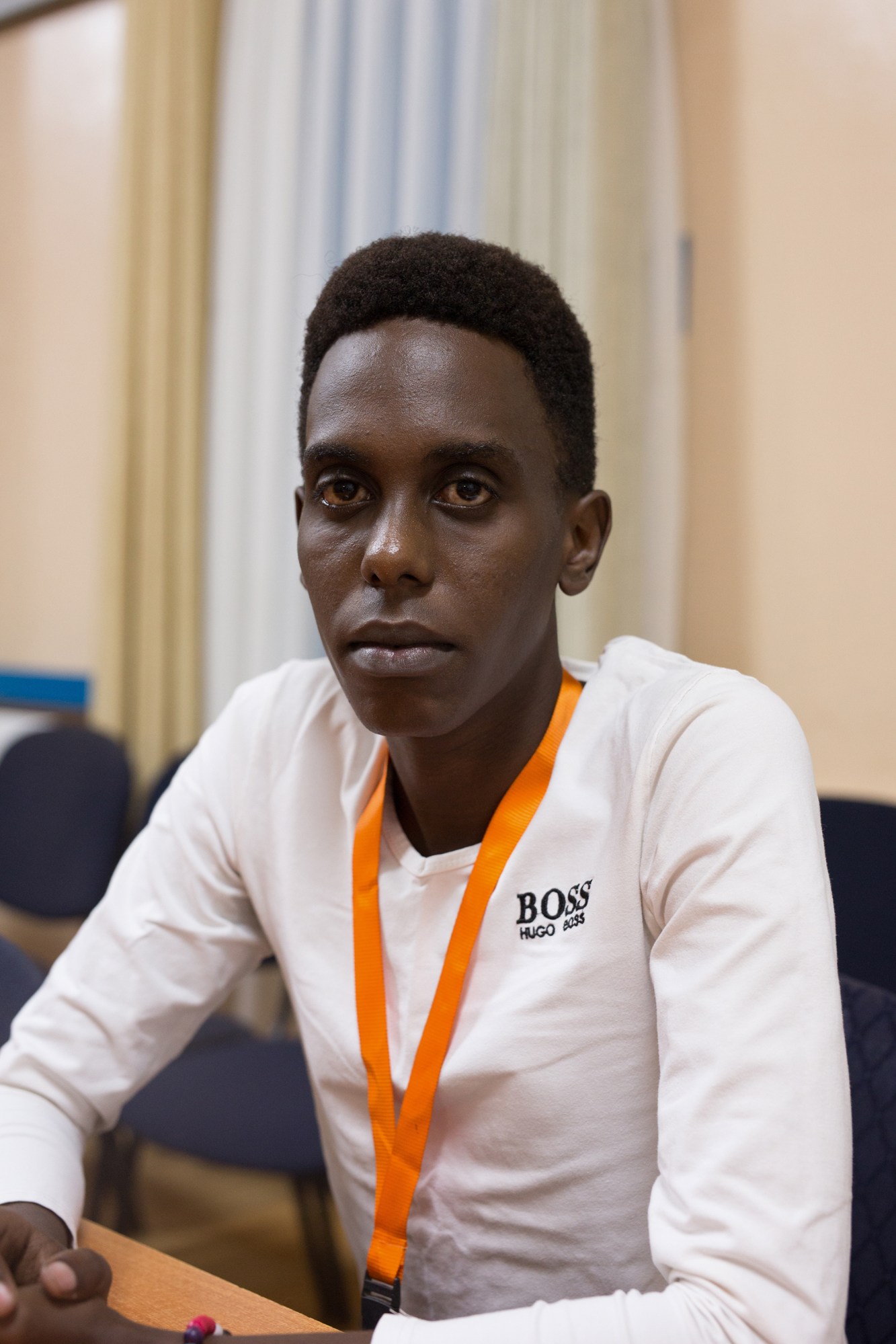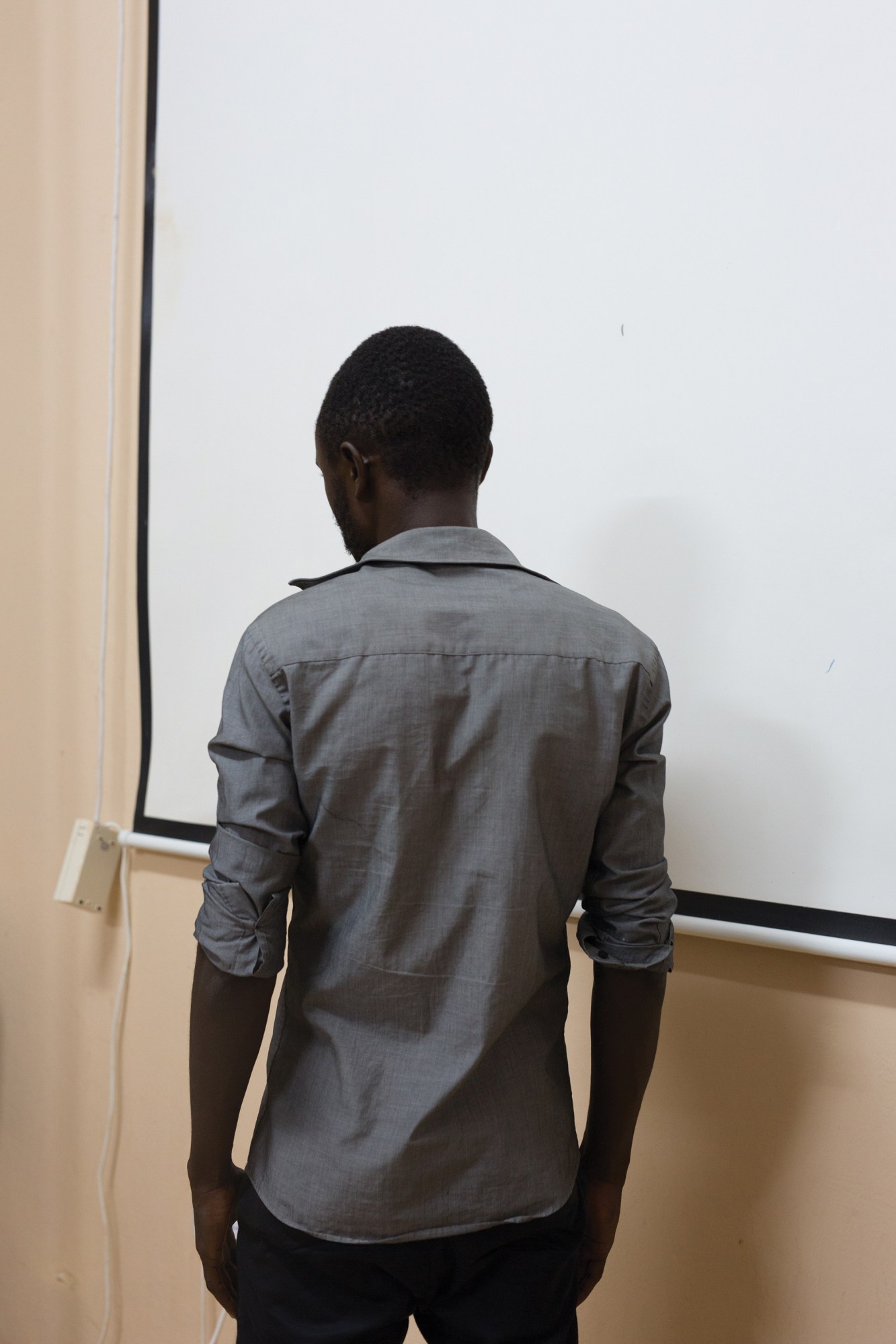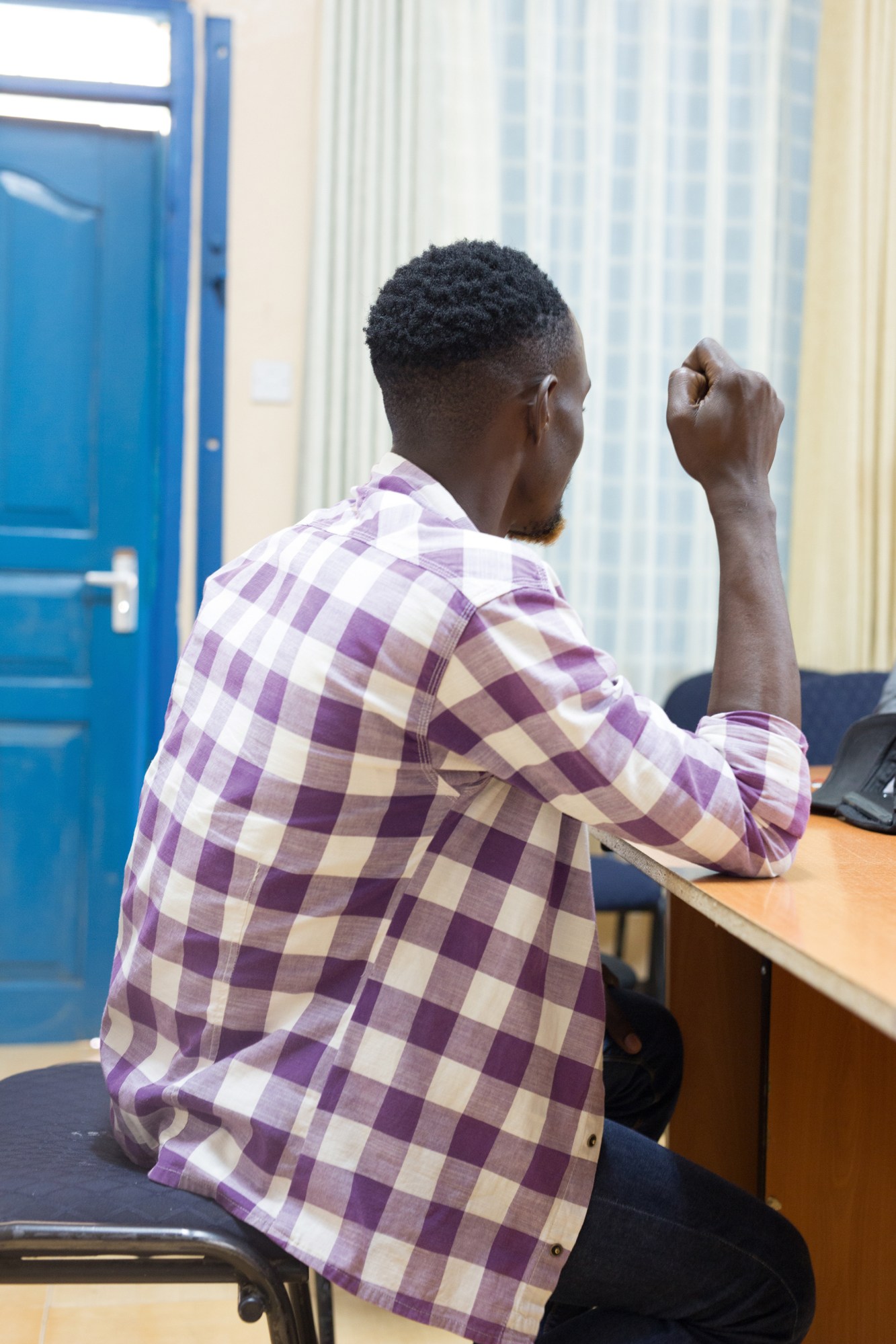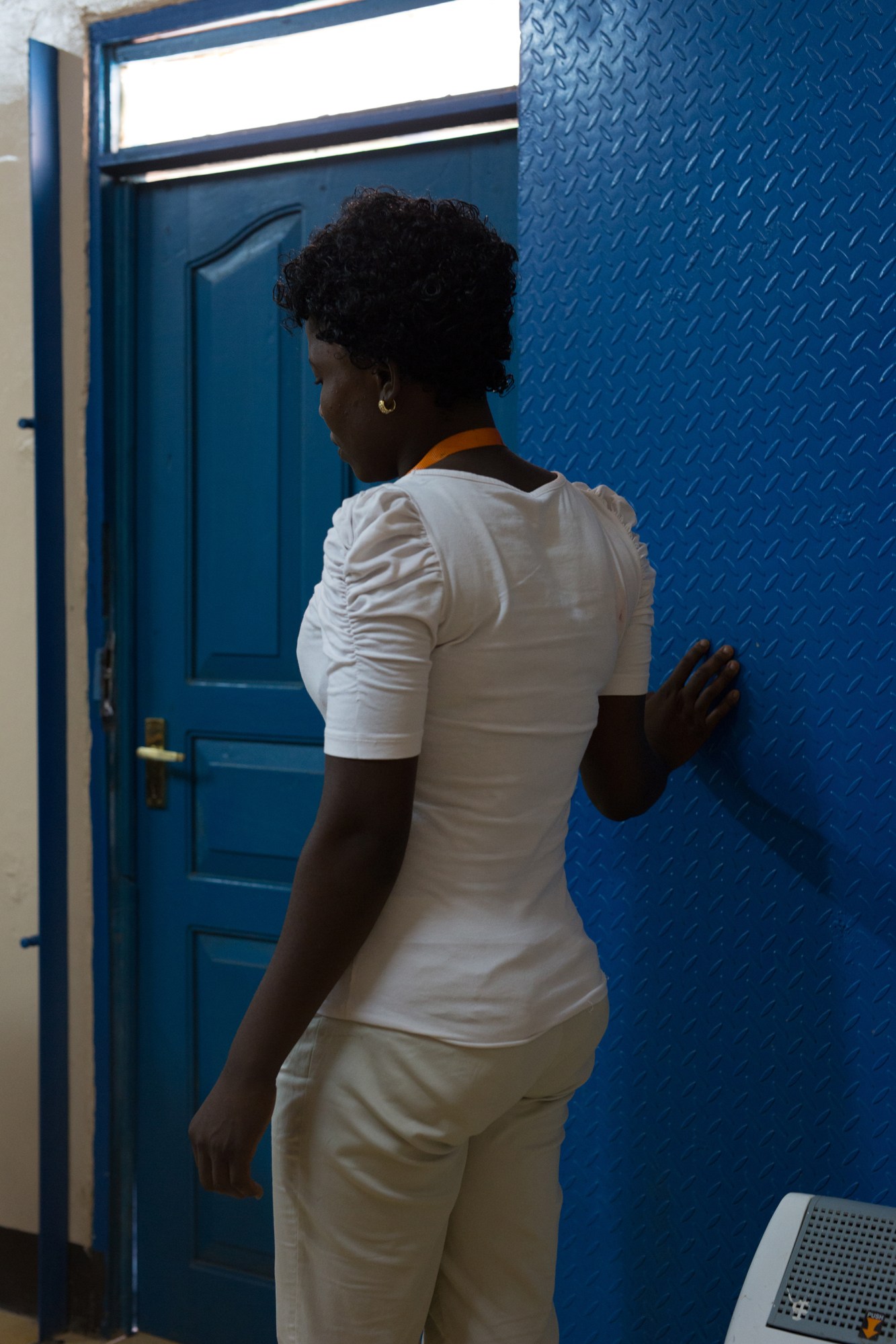This article originally appeared in i-D’s The Superstar Issue, no. 354, Winter 2018
Uganda became infamous for passing an Anti-Homosexuality Act in late 2013, that would give a life sentence in prison to anyone found guilty of “aggravated homosexuality”. While it was subsequently overturned in August of 2014 on a technicality, members of the Ugandan parliament are advocating for a revised version of the bill.
Unfortunately, Uganda is not an anomaly on the continent, homosexuality continues to be criminalised and violently discriminated against in many parts of Africa. Support and activism for LGBTI rights is growing, yet such efforts often backfire, subverted by the complicated histories and narratives of colonialism that deem homosexuality, as opposed to homophobia, as the ‘white man’s disease’. These arguments are ironic given the Commonwealth law that states ‘carnal knowledge against the order of nature’ is derived from British penal codes, written by Thomas Macaulay in 1860 for India, and revised in 1899 by Sir Samuel Griffith for Queensland. And such ‘colonial’ sentiment continues to be aggressively promoted, some say with even greater fervor, by Evangelical activists and missionaries from the U.S. In particular the Family Research Council, who supported the President of Uganda’s ‘kill the gays’ law, and Pat Robertson’s American Center for Law and Justice, which also operates in Zimbabwe as the African Centre for Law and Justice and in Kenya as the East African Centre for Law and Justice.
During my first touring exhibition in Africa, Fragile, shown in Kinshasa, Nairobi and Johannesburg, I visited the Kakuma Refugee Camp in Kenya to meet with the self-organising LGBTI community there to hear their stories and to help amplify their needs. Because of the danger they face, some participants have asked to remain anonymous.

Wolfgang: Many LGBTI activists think that the gay rights movement in Africa is compromised due to the complicated politics of ‘post-colonialism’ as gay rights are also considered a ‘white man’s’ initiative. I read that the activist Edwin Sesange of the African Equality Foundation accused Rebecca Kadaga – the Speaker of the Parliament of Uganda – of being a hypocrite for not accepting “that the west introduced homophobia, not homosexuality, to Africa and Asia.” While you are all from Uganda, you say that homophobia is not only severe in Uganda, but in African communities generally. Why is that the case? Is it due to Christian or Muslim, beliefs?
Joseph: There’s this widely held heteronormative assumption in Africa that every boy grows into a man and finds a woman for a partner – or the other way around. Anything different from that is met with violent opposition. Most of these anti-gay arguments are hinged on the premise that “same sex attraction is not an innate and immutable characteristic”, which is what David Bahati, who introduced the anti-gay bill in the Parliament of Uganda, said.
Graham: After some Anglican church leaders were exposed as homosexual, Rebecca Kadaga, who is Anglican, said she can never listen to anything concerning LGBTI people, that Uganda will never tolerate such behaviour – never.
There’s always this argument that it is ‘un-African’, but Christianity is ‘un-African’, it’s colonial…
Razak: Foreigners brought the religions we believe in here, but I think it’s more to do with culture. In Europe there are gays as well, but here they say it’s not African, that it’s against our culture, and if you’re gay you’re considered a bad omen.
G: Yeah, a bad omen, it’s true. And an outcast.
R: You’re cursed.
J: They think it’s a threat to the institution of marriage.
G: And the moment they find out you are gay, you are chased out.
It just seems that it is portrayed as a Western disease and that any advocacy done in the West, backfires here…
J: I have no idea why some Africans think that homosexuality is the white man’s disease. Maybe it’s just convenient for them to think so?
R: Most people here in Africa believe that homosexuality is a vice being spread by the whites and they can’t allow it to destroy African culture.
G: You cannot convince Ugandans that it can be someone’s nature.
J: They think it’s a ‘white behaviour’, so you cannot convince them that this is my nature and that’s how I feel. They call it madness.
Elizabeth: There is no way you can explain yourself to them. They just want you to listen to what they are saying.
G: You have no right to speak.
E: They want to decide for you what you do with your life. They treat you as if you are not a human being.
G: For example, when we came to Kakuma in 2015 there was a drought and they blamed the lack of rain on gay people. You understand… They consider you as something very evil, so evil that you can cause a calamity in their land. It’s very difficult to convince such a person that it can be my nature, that this is how I feel. There’s no way that you can make him see your perspective; he can never believe in it. So that’s why he calls it “insanity.”
E: Whenever there is too much sunshine, we go through a lot of challenges.
G: A lot of attacks, not challenges, attacks.
E: They always attack us and there is no way you can report it or take action. The police are homophobic, so even if you report it, they just look at you. They tell you to go back home.

How long have you been in the Kakuma refugee camp? How did you find out about the camp accepting LGBTI ‘refugees’?
J: I have been here for two years and seven months now. I was in Nairobi for about two months in the UNHCR-run transit centre and then I came to Kakuma. While in the transit centre, I was told that there were other LGBTI refugees in the camp. That’s how I found out.
What experience in Uganda pushed you to decide to leave?
J: My life was threatened. I ran for the hills. In the wake of the anti-homosexuality bill in Uganda the atmosphere became really tense for gay people. Homophobia was, and is still, rife, almost palpable. A number of gay people brutally lost their lives at the hands of vicious homophobic folks. Others were incarcerated simply for who they are. What I experienced and witnessed prompted me to leave.
Do you have any contact with anyone from your home?
J: No.
E: They don’t even know where we are. I think if they knew they could even come and crush us.
When did you realise you were gay/lesbian? Did you tell anyone?
J: There was this male science teacher I had the hots for, so I think as a child I was unknowingly gay since I hadn’t [yet] learnt the vocabulary for describing people like me. After my coming of age and reading widely, I was hit by the realisation of who I am but kept it under wraps for my safety.
What is daily life like in the camp?
J: Wake up, eat (if one actually has something to eat) then nest. It’s difficult for any LGBTI refugee to get a job here compared to other, non-LGBTI, refugees. Most, if not all, of the organisations operating here don’t want to associate with LGBTI people.
Are you able to work here in any capacity?
E: We have the ability and the knowledge to work, but there is no way. We aren’t always given the opportunity. Or once you are given it, they use all the means they have to make you give up.
Do any of you have partners in or outside the camp? To what degree can you be ‘out’ here or must you keep your sexuality hidden?
J: I don’t have a partner, the circumstances are unfavourable.
Do others in the camp know about the LGBTI community? How risky or dangerous is it for you to organise here?
J: Almost everyone knows about the presence of the LGBTI community in the camp and needless to say, it’s very risky organising here. I couldn’t even start to explain the overflow of hatred towards us.

So it is still unsafe. Do you receive any support or protection? Or are you separated from the rest…
J: The area where shelters accommodating LGBTI people were set up is referred to as a ‘protection area’. I wouldn’t call it that because anyone wishing to carry out an attack on us could do so whenever they feel like, and that has happened several times. There’s no protection at all.
G: And to make matters worse, we mix with the most homophobic people. In our compounds, we have Turkanas, the host community, we have Sudanese…
E: Who are Muslims. The buildings where we stay do not have actual windows, just plastic sheets, because that’s what they can provide. Someone can just cut through it. We don’t have much security.
Have you been attacked?
All: Yes, so many times.
J: On a weekly basis.
G: It happens every day. Someone can be walking and he is attacked. Someone can be at home and he is attacked. Somebody can be going to the hospital and he is attacked. Anytime you feel like you can be attacked. Most especially those people who are transgender, who look so ‘out’. It’s very dangerous. Anytime.
What possibilities are there for resettlement?
J: There are no opportunities I can think of. Maybe there’s a chance, though resettlement slots are very limited. Receiving countries have greatly reduced their annual quotas, with the USA almost pulling out which leaves us in an awkward limbo.
Does the UNHCR/Kakuma refugee camp provide access to LGBTI resources, education, health information, and health care?
J: Yes, although it is limited. Getting attended to by health practitioners in clinics is another predicament. If not ridiculed or insulted, they snub you flat-out. It’s absurd!
How often does the LGBTI community meet as a group? How many gay and lesbians are you here in this camp at the moment?
J: Whenever UNHCR calls for a meeting to discuss pressing issues, we convene.
E: We are 170 members, give or take.
And it’s people from other countries as well as Uganda?
E: Yes, other countries, it’s mixed.

How has the homophobic culture in the region and in the camp affected you mentally, and how you speak and engage with people outside of the LGBTI community?
J: I am very suspicious of people. I find myself constantly on guard. While in Uganda, I suffered a severe existential crisis and went as far as trying to take my own life as a result of homophobia, which was verbal in nature. Fortunately, I survived that phase of my life and developed a thick skin. Hated or not, I am unashamedly me.
What would help you and the LGBTI community at Kakuma right now? What resources would be helpful?
J: Resettlement to countries that recognise the rights of LGBTI people is all that would help.
Do you think education initiatives (in and outside the camp) around LGBTI issues and its historical ‘naturalness’ throughout regions in Africa before colonisation would be an effective strategy?
J: Education Initiatives around LGBTI issues and its historical naturalness is a brilliant idea, in itself. But, not many are willing to change their mindset about this. They outright reject it. And such initiatives may be viewed as a subtle way of spreading homosexuality, especially here, and in countries where it’s criminalised.
What actions or strategies do you think could help the situation here in the camp and your regions more broadly?
J: Resettlement to LGBTI-accepting countries is the only viable solution. More broadly, activists lobbying and engaging with governments to revise laws that unfairly incriminate LGBTI people wouldn’t be a bad start.
R: We are still failing to convince Africans to accept LGBTI people. The UN’s hands are tied when it comes to finding security for us, or resettlement, but it’s trying to do everything it can. We can speak through people like you, people who come and listen to us, we can make noise in foreign countries and hopefully change minds.
E: What hurts most is, at times when we cry, no one comes to care. It seems as though they are not hearing. We can cry louder, everywhere we are crying, but there is still no response to our tears.
G: No response at all.
So there is very little hope that anything will change in your country?
G: There is no hope.
So What do you hope for? What do you want for the future, where do you want to be?
J: Not so long ago, one of my attackers, before punching me in the face, asked “who will marry the woman destined to be yours?” What he said is absolute drivel. But sadly, that’s how most people are wired! I just wish homosexuality was perceived like left-handedness, like an inalienable part of some people. I want homosexuality to be legalised and to live somewhere I can be safe and accepted for who I am.
Is there anything else you would like to say to those that may read and see this?
J: To anyone who might read this, LGBTI refugees in Kakuma have a Facebook page “Refugee Flag Kakuma.” There you will find individual stories about how life generally is in the camp. Also, if you are sympathetic enough to make a contribution to the well-being of these people of concern, all the details are there. I don’t run the page but there are people you can reach out to. Thank you.
To learn more about the situation in the Kakuma Refugee camp and how can you help, please visit the Refugee Flag Kakuma Facebook page. Special thanks to Martin Schäffer of the UNO-Flüchtlingshilfe, the German partner of the UNHCR, who organised my visit to Kakuma. Deepest gratitude to the UNHCR for their tireless work helping refugees throughout the world. Please help spread the word.
Credits
Text and photography Wolfgang Tillmans.
With special thanks to the UNHCR and Jennifer Hope Davy.
